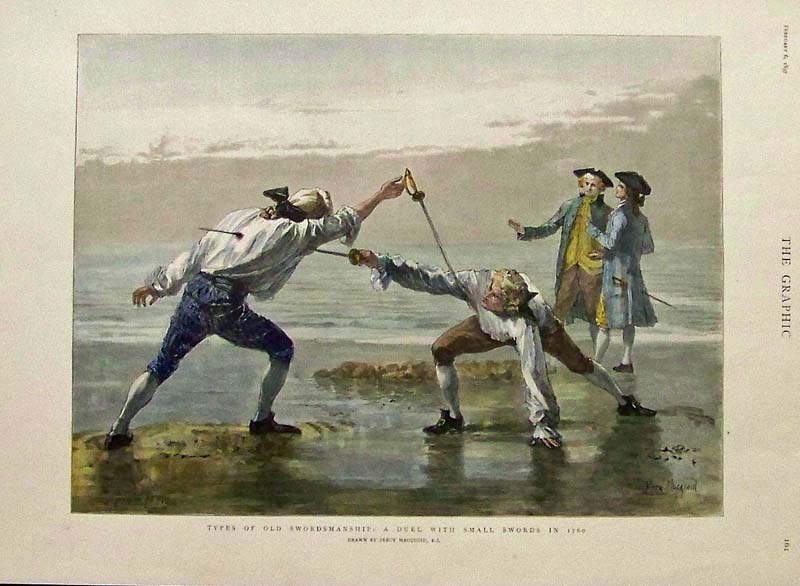
Thick Skin Is For Unequals: PC Culture, Insults & Taking Offense
“Bourgeois men succeeded in challenging aristocrats only when they had already received some formal recognition of status, either via legal equality or admission to some institution (eg, officer corps, universities) on an equal footing with aristocrats. Official recognition of equality is what enabled them to defend their equal status, by duel, in the broader social realm. When the hierarchical division between aristocracy and bourgeoisie was fully intact, bourgeois men would not have thought to take offence to slights from their betters, and their betters would not have listened if they did. Official equality establishes the norm in virtue of which men can demand respect. Equality made their skins thin. Thick skin is for UNEQUALS.” – Clifton Mark
I recently read a few articles that were all related: this one in The Atlantic which discusses a recent report from the More in Common organization titled “Hidden Tribes: A Study of America’s Polarized Landscape,” this one in Salon that analyses both the report and the The Atlantic article, and this one in Aeon (quoted above) that doesn’t mention the report but does advance a fascinating historical perspective on offense taking and “call-out culture.”
I think the Salon article does a good job of pointing out the shortcomings of both the More in Common report (which, btw, did not define “political correctness” for its participants) and The Atlantic article. This quote from the Salon piece seems to sum up the findings of the report pretty well:
“For the 25% of the hard right, PC culture is loathed because it means loss of freedom to offend and harass with impunity. For everyone else, negative association with the term reflect human’s hard-wired strong dislike of being embarrassed — fear of doing (saying) the wrong thing.”
I get where people are coming from when they say they’re afraid to say the wrong thing and be embarrassed; I hate feeling embarrassed. Seriously, I HATE IT. I hate being laughed at, ridiculed or made to feel foolish. It’s a horrible, horrible feeling. Believe me, I get it. So, recognizing that I am able to sympathize with this basic human fear that people have, I will say this: speaking personally, I have a relatively optimistic view of humans, and I do try to live out the Christian edict of doing to others what I would have them do unto me. So, for me, it follows that if a well intentioned person, who is not up on the latest lingo or something, makes an honest mistake and says something potentially offensive there is no need for me to shame or embarrass that person, lest I be shamed. It’s completely possible for one to correct and/or inform without being sanctimonious. Obviously, I would expect the same treatment in return. Additionally, not knowing everything is not in itself a reason to feel ashamed or embarrassed, in my opinion; on the contrary, admitting it and asking questions is actually a virtue (Socrates ftw!). A little mutual grace and humility might go a long way in these sort of situations.
That said, as for the 25% who loath PC culture “because it means loss of freedom to offend and harass with impunity,” well, I have much less sympathy, patience and understanding for these folks. The Aeon article does a great job, I think, in framing our contemporary PC environment in terms of how older cultures understood offense, honor and dueling; looking through this lens it is clear that the 25% (mostly on the hard right) who loath PC culture because they can’t say the horrible things they used to say anymore, and who also whine that people are being too sensitive, are basically echoing the age-old aristocratic sentiment: low-borns should know their place. To spoil the Aeon article (which really is worth a look!):
“Offence-as-insult suggests that those who take offence today should not be thought of as exceptionally fragile. They are sensitive, but only because they insist on the respect that, according to our norms of status equality, they are owed…If offence is about insult, then those who take offence today might be like early bourgeois duellists who began to stand on their pride after being made to swallow it for so long.”
I still think we can all work toward omnisensitivty. Let’s strive to continually increase our scope of concern, shall we?

0 Comments